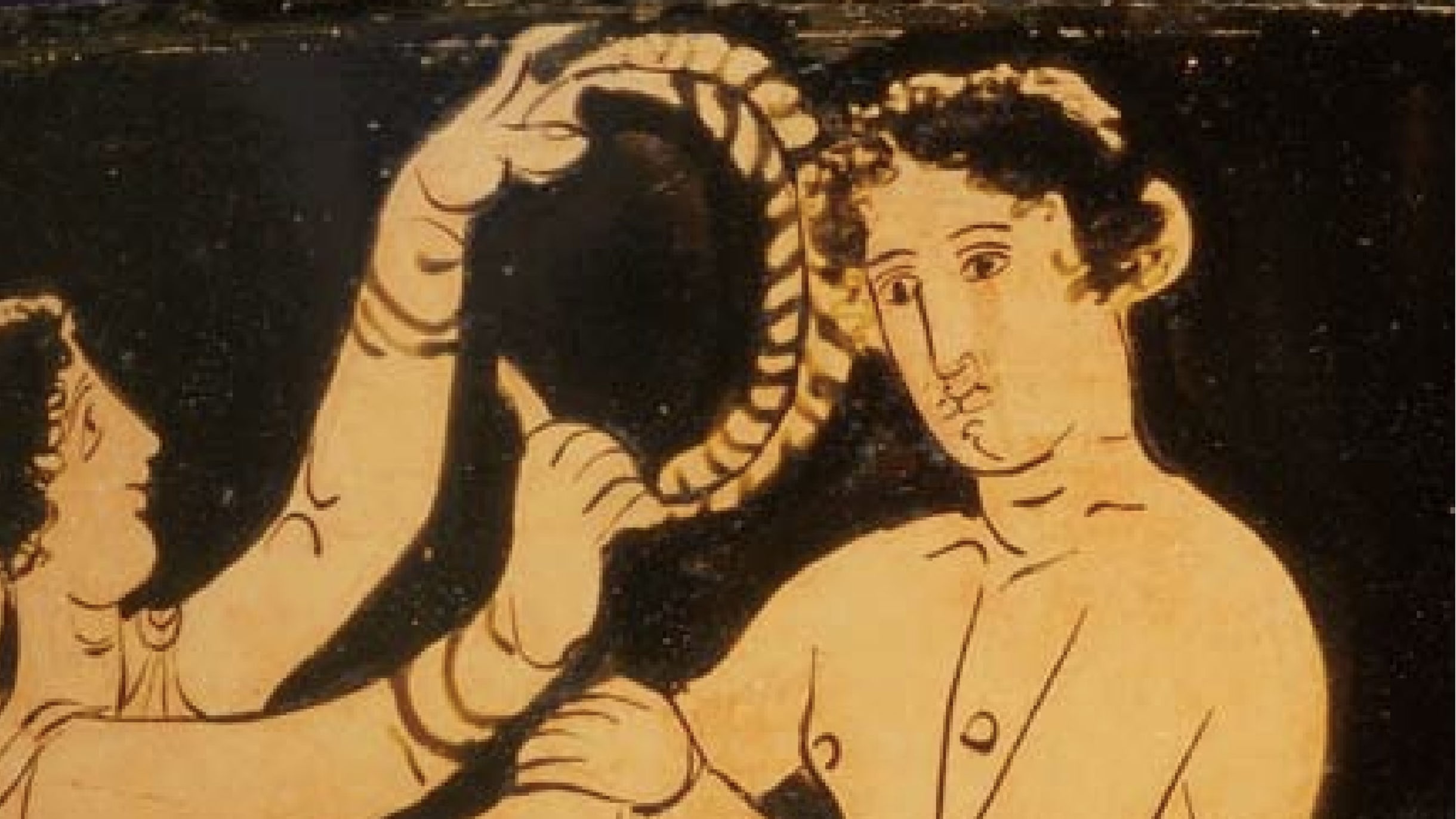
Winners' rewards
Crowns, ribbons and palm branches
At the modern Olympic Games, the first, second and third-placed athletes are rewarded, respectively, by gold, silver and bronze medals. At the Panhellenic Games, there was only one winner whose prize was a wreath or crown of leaves.
At each of the venues, the crowns were made with different types of leaves:
- At Olympia, it was a wild olive leaf crown
- At Delphi, a laurel crown
- At Corinth, a pine crown
- At Nemea, a wildcelery crown
As well as a crown, the winner received a red woollen ribbon, the taenia. A famous statue by the sculptor Polycletus (dating from the second half of the 5th century BC) shows a victor tying the ribbon around his head. Finally, the winner often held a palm frond, another sign of his victory.
Nike, the Messenger of the Gods
The Ancient Greeks considered that it was the gods who decided to grant victory to an athlete. Victory was often represented in the form of a winged female character known as Nike, which means “victory” in Greek. As the servant or messenger of the Gods, Nike flew down to the chosen person, to bring them their divine reward in the form of a wreath or ribbon.
Fame
Although winners did not receive any financial reward, Olympic champions became important figures in their town or city, where they often took on a political role.The glory of the victorious athlete brought reflected glory to all the inhabitants of his home town. When he returned from the Games, he was given a hero’s welcome and received numerous benefits for the rest of his life.
To show that he had become famous, the victor had the right to have a statue of himself erected. He could also ask a poet to write verses telling of his feats. Because they were proud of him, his fellow citizens sometimes made coins with his effigy on them, so as not to forget him and to make him known throughout the Greek world.
Prizes in local competitions
The prizes awarded in local competitions had a greater material value. Amphorae filled with olive oil were often given to the winner. During this period, olive oil was extremely precious and worth a lot of money. Other treasures, such as bronze tripods (big vases with three feet), bronze shields or silver cups were also given as prizes.
In spite of this difference, the prestige of the Panhellenic Games remained unequalled. The modest crown of leaves was the highest possible reward in the Greek world, as it guaranteed its holder honour and respect from everyone.